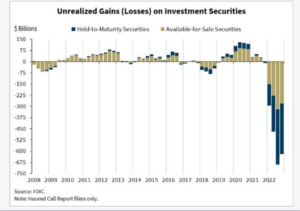
Artificial intelligence will have a seismic effect on financial services. McKinsey has
predicted that AI could deliver a “value-creation opportunity of up to $20 trillion” for banks each year. Accenture also
argued that 90% of all working hours in the banking industry will be “impacted” by large language models such as ChatGPT and predicted that half of all work time in the sector could be automated.
At a recent Open Banking Excellence (OBE) Campfire, Michael Borrelli, Director of AI & Partners, said: “In an era where data is the oil, AI will be the new combustion engine.”
Data will be the great enabler of AI. Open Banking and Open Finance lets that data securely flow between lenders and their customers. Together, these two paradigms can unlock the power of data to drive fairer, faster and more accessible financial services as well as significant industry growth.
A huge growth opportunity for big banks
At the Campfire, Karen Wall, EMEA Open Banking Product Lead at J.P. Morgan, discussed the financial giant’s work in this exciting space. It has collaborated with a range of fintechs working on AI, looking at use cases such as payment processing and accessing wider “collective intelligence,” which it describes as “a collaborative ecosystem where shared data is more powerful than the sum of its parts”.
One of the major opportunities Karen highlighted was “self-driving treasury” in which AI is used to automate money management and movement as well as creating real-time insights that “drive more meaningful decision-making at a liquidity level”.
“You can leverage some of the insights you’re getting from Open Banking or Open Finance,” she added.
Karen also shared some superb learnings for banks that are deploying AI, suggesting they consider setting up their product stack to deliver good outcomes for both direct customers and the wider ecosystem. Banks should carefully consider how they are collecting intelligence and gathering data from across the institution. Siloes need to be broken down to provide shared views of how AI is deployed across different lines of business. Strict governance models must ensure data is used and consumed safely. Firms should also provide transparency for end users so that they know how their data is being used. When using a Large Language Model, careful thought should be given to the data that is used to train it so that bias is mitigated.
Karen added: “Those are key components that everyone should have in the back of their mind. If we deploy this technology, and for some institutions, it is early days, so they’re still learning as they go. But those are core tenets of their business today. How are you deploying products to market, what technology are you using and what information is informing that deployment and oversight of the product to ensure good outcomes?”
The real customer benefits of artificial intelligence
“AI has been used to help surgeons make better, faster decisions for their patients’ treatment,” said Suzanne Homewood, Decisioning Managing Director of Moneyhub “In our world, it’s about how we can make better decisions for customers.”
Suzanne said AI could help everyone from underwriters to customer service agents serve customers more effectively by automating routine tasks and leaving human employees free to pay attention to “outlying cases such as people who need [personalised] support, rather than a broad brush approach”.
She also emphasised the ability of AI and data analytics to enhance decision-making, leading to better efficiency, cost control, and fraud reduction. She noted that one lender observed a 15% dropout rate in applicants identified as fraudulent through Open Banking. Loans made with better-informed decisions that use open banking data to assess affordability perform up to 50% better than other loans, Suzanne continued. AI and data not only benefit consumers but also aid organisations in offering improved products and services, thereby enabling business growth and wider financial inclusion.
“Humans are still going to exist and we’re still going to need to hold people’s hands,” she said.
Positive signs of future growth can be seen in the younger generation’s changing outlook on sharing data.
Suzanne continued: “The younger generation that are accessing financial services have a completely different attitude to data… As long as as long as they understand what they’re going to get out of it, people are prepared to share their data.”
Industry inspiration: AI in insurance
AI is transforming the insurance industry. The industry collects a vast amount of data, including historical claims, credit scores, and social media activity. AI can harness this data to enhance insurance products and services. Its impact will be particularly notable in areas like professional indemnity, directors and officers, cyber, and crime policies, said Natalie Simpson, Claims Manager at Protean Risk.
In areas like motor and home insurance, AI is already being used to accelerate claims processing. For example, AI can assess damages from photos and expedite payouts. Despite these benefits, AI in insurance will require continuous oversight to manage how it learns and makes decisions. Natalie agreed that the human touch would be vital in some interactions.
She said: “Having all that data and the ability to analyse data patterns can detect and prevent fraud as well as improving customer experience and free up that workforce to have one-to-one contact with their customers. However, I think we’ve all been in those situations where you’re stuck in a call cycle of trying to get through to a person or you’re just talking to a chatbot. It’ll be difficult to completely erase humans.”
The future is bright – and not very far away. ChatGPT shows us how quickly disruptive change can occur and shift the ground beneath our feet at unprecedented speed. After its launch at the end of 2022, it achieved 100 million monthly active users in just two months.
AI and Open Finance will fuel one of the next big bangs of economic growth. As the nation which set the blueprint for Open Banking, the UK has the chance to be right at the centre of this supernova.
- SEO Powered Content & PR Distribution. Get Amplified Today.
- PlatoData.Network Vertical Generative Ai. Empower Yourself. Access Here.
- PlatoAiStream. Web3 Intelligence. Knowledge Amplified. Access Here.
- PlatoESG. Carbon, CleanTech, Energy, Environment, Solar, Waste Management. Access Here.
- PlatoHealth. Biotech and Clinical Trials Intelligence. Access Here.
- Source: https://www.finextra.com/blogposting/25316/data-is-the-fuel-that-will-drive-ai-amp-open-finance-growth?utm_medium=rssfinextra&utm_source=finextrablogs
- :has
- :is
- :not
- :where
- ][p
- $UP
- 100
- 15%
- 2022
- 7
- a
- ability
- About
- accelerate
- Accenture
- accessible
- accessing
- achieved
- across
- active
- activity
- added
- After
- agents
- agreed
- AI
- AI in Insurance
- Aid
- All
- already
- also
- amount
- an
- analyse
- analytics
- and
- applicants
- ARE
- areas
- artificial
- AS
- assess
- At
- attention
- attitude
- automate
- Automated
- automating
- away
- back
- Banking
- banking industry
- Banks
- BE
- been
- being
- beneath
- benefit
- benefits
- Better
- between
- bias
- Big
- blueprint
- both
- Bright
- broad
- Broken
- business
- but
- by
- call
- CAN
- careful
- carefully
- cases
- centre
- Chance
- change
- changing
- chatbot
- ChatGPT
- claims
- collaborated
- collaborative
- Collecting
- completely
- components
- Consider
- consumed
- Consumers
- contact
- continued
- continuous
- control
- Core
- Cost
- could
- Creating
- credit
- Crime
- customer
- customer experience
- Customer Service
- Customers
- cyber
- cycle
- data
- Data Analytics
- Days
- Decision Making
- decisions
- deliver
- deploy
- deployed
- deploying
- deployment
- Despite
- detect
- different
- difficult
- direct
- Director
- Directors
- discussed
- disruptive
- down
- drive
- each
- Early
- Economic
- Economic growth
- ecosystem
- effect
- effectively
- efficiency
- EMEA
- employees
- enabler
- enabling
- end
- Engine
- enhance
- ensure
- Era
- everyone
- example
- Excellence
- exciting
- exist
- expedite
- experience
- fairer
- far
- faster
- Feet
- finance
- financial
- financial inclusion
- financial services
- Finextra
- fintechs
- firms
- flow
- For
- fraud
- fraudulent
- Free
- from
- Fuel
- future
- future growth
- gathering
- generation
- get
- getting
- given
- Go
- going
- good
- governance
- great
- Ground
- Growth
- Half
- Hands
- harness
- Have
- help
- Highlighted
- historical
- hold
- Home
- HOURS
- How
- However
- HTTPS
- huge
- human
- Humans
- i
- identified
- if
- Impact
- improved
- improving
- in
- Including
- inclusion
- industry
- information
- insights
- Inspiration
- Institution
- institutions
- insurance
- Intelligence
- interactions
- IT
- ITS
- J.P. Morgan
- jpg
- just
- karen
- Key
- Know
- language
- large
- launch
- lead
- leading
- learning
- learns
- leaving
- lender
- lenders
- Lets
- Leverage
- like
- lines
- Liquidity
- Loans
- Long
- looking
- made
- major
- make
- MAKES
- manage
- management
- manager
- managing
- Managing Director
- Market
- McKinsey
- meaningful
- Media
- Michael
- million
- mind
- model
- models
- money
- money management
- Moneyhub
- monthly
- months
- more
- Morgan
- Motor
- movement
- must
- nation
- Need
- New
- next
- notable
- noted
- of
- offering
- officers
- Oil
- on
- ONE
- only
- open
- open banking
- opportunities
- Opportunity
- or
- Organisations
- Other
- our
- out
- outcomes
- Outlook
- Oversight
- paradigms
- particularly
- partners
- patterns
- Pay
- payment
- payment processing
- payouts
- People
- Perform
- person
- Personalised
- Photos
- plato
- Plato Data Intelligence
- PlatoData
- policies
- power
- powerful
- predicted
- prepared
- prevent
- processing
- Product
- Products
- professional
- provide
- quickly
- range
- Rate
- rather
- RE
- real
- real-time
- recent
- reduction
- require
- right
- Risk
- routine
- s
- safely
- Said
- sector
- securely
- seen
- seismic
- serve
- service
- Services
- set
- setting
- Share
- shared
- sharing
- she
- shift
- should
- Shows
- significant
- Signs
- situations
- So
- Social
- social media
- some
- Space
- speed
- stack
- Still
- Strict
- such
- supernova
- support
- talking
- tasks
- Technology
- tenets
- than
- that
- The
- the UK
- their
- thereby
- These
- they
- think
- this
- those
- thought
- Through
- time
- to
- today
- together
- touch
- Train
- transforming
- Transparency
- treatment
- trying
- two
- Uk
- understand
- unlock
- unprecedented
- us
- use
- used
- users
- using
- Vast
- Ve
- very
- views
- vital
- Wall
- was
- we
- WELL
- What
- when
- which
- WHO
- wider
- will
- with
- Work
- Workforce
- working
- world
- would
- year
- You
- Younger
- zephyrnet













